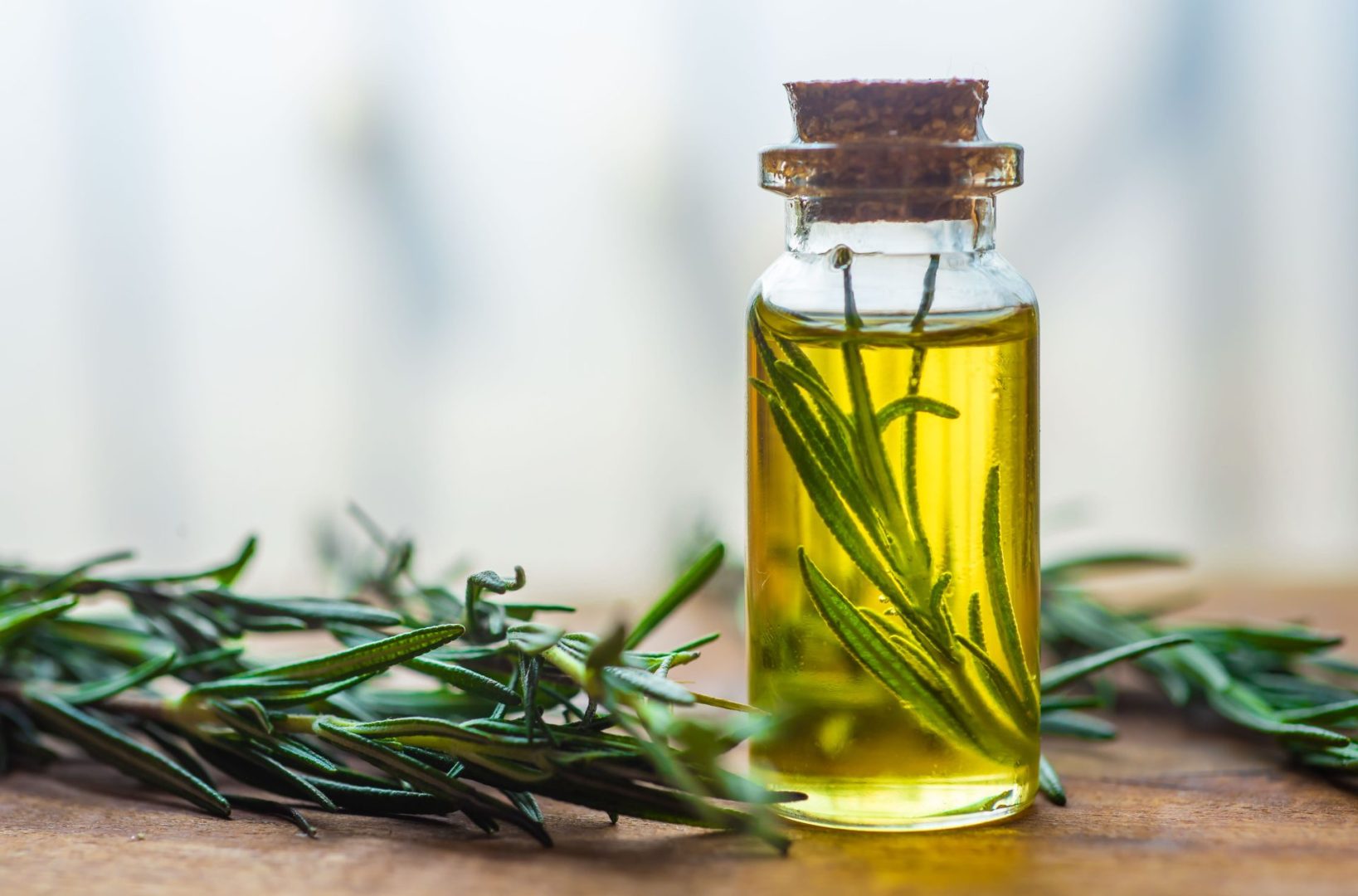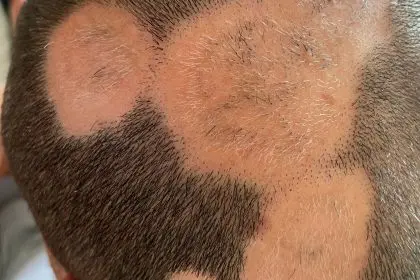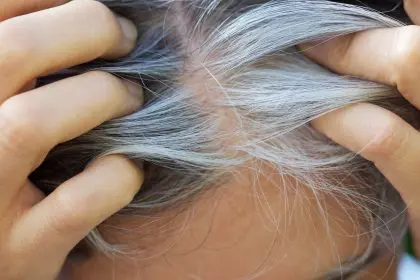Hair loss affects millions of people worldwide, creating emotional distress and diminished confidence as once-thick locks gradually thin or disappear entirely. While numerous commercial treatments promise miraculous results, rosemary oil has emerged as a natural solution backed by scientific understanding of its unique mechanisms for stimulating hair regrowth.
This aromatic herb, scientifically known as Rosmarinus officinalis, contains powerful bioactive compounds that directly influence hair follicle function, scalp circulation, and the cellular processes responsible for hair production. Understanding how rosemary oil works at the molecular level reveals why this ancient remedy continues to gain recognition as an effective treatment for various types of hair loss.
The oil’s effectiveness stems from its ability to address multiple factors that contribute to hair loss simultaneously, making it particularly valuable for people experiencing androgenetic alopecia, stress-related hair loss, or age-related thinning patterns.
Enhanced blood circulation reaches dormant follicles
The first mechanism through which rosemary oil stimulates hair regrowth involves its remarkable ability to improve blood circulation throughout the scalp tissue. The oil contains compounds that act as natural vasodilators, causing blood vessels to expand and allowing increased blood flow to reach hair follicles that may have become undernourished.
Improved circulation delivers essential nutrients, oxygen, and growth factors directly to the hair follicle matrix, where new hair cells are produced. Many hair follicles that appear dormant or inactive are actually simply lacking adequate blood supply to support normal hair production cycles.
The circulatory enhancement effect of rosemary oil can be felt as a warming or tingling sensation when applied to the scalp, indicating increased blood flow to the treated area. This improved circulation can reactivate follicles that have been dormant for months or even years.
Regular application of rosemary oil creates sustained improvements in scalp circulation, providing the consistent nutrient delivery necessary for healthy hair growth cycles. The enhanced blood flow also helps remove metabolic waste products that can accumulate around hair follicles and inhibit their function.
DHT blocking properties protect follicles from shrinkage
The second powerful mechanism involves rosemary oil’s ability to inhibit the production and activity of dihydrotestosterone (DHT), the hormone primarily responsible for androgenetic alopecia or pattern baldness. DHT causes hair follicles to gradually shrink, producing progressively thinner and shorter hairs until they eventually stop producing hair altogether.
Rosemary oil contains natural compounds that interfere with the enzyme 5-alpha-reductase, which converts testosterone into DHT. By reducing DHT levels in scalp tissue, the oil helps prevent further follicle miniaturization while allowing affected follicles to gradually return to their normal size and function.
The DHT-blocking effect of rosemary oil is particularly beneficial for people experiencing male or female pattern baldness, where elevated DHT sensitivity causes characteristic patterns of hair loss on the crown and hairline areas. This hormonal protection helps preserve existing hair while creating conditions favorable for regrowth.
Unlike some synthetic DHT blockers that can cause systemic side effects, rosemary oil provides localized hormone regulation that specifically targets scalp tissue without affecting hormone levels throughout the rest of the body.
Anti-inflammatory compounds reduce scalp irritation
The third mechanism through which rosemary oil promotes hair regrowth involves its potent anti-inflammatory properties that help create an optimal scalp environment for healthy hair production. Chronic inflammation in scalp tissue can disrupt normal hair growth cycles and contribute to various forms of hair loss.
The oil contains natural anti-inflammatory compounds that reduce irritation, redness, and inflammatory responses that can damage hair follicles or interfere with their normal function. This anti-inflammatory action is particularly important for people with sensitive scalps or conditions like seborrheic dermatitis that can contribute to hair loss.
Reduced inflammation allows hair follicles to function more efficiently and extends the anagen (growth) phase of the hair cycle, resulting in longer, stronger hairs that are less likely to fall out prematurely. The anti-inflammatory effects also help reduce itching and discomfort that can lead to scratching and mechanical hair damage.
The calming effect of rosemary oil on scalp tissue creates a healthier environment for hair regrowth while preventing the inflammatory cascades that can worsen existing hair loss conditions.
Antioxidant protection prevents cellular damage
The fourth way rosemary oil stimulates hair regrowth is through its powerful antioxidant properties that protect hair follicle cells from damage caused by free radicals and oxidative stress. Environmental factors, pollution, UV radiation, and normal metabolic processes can create harmful free radicals that damage the delicate cells responsible for hair production.
The oil contains high concentrations of antioxidant compounds including rosmarinic acid, carnosic acid, and carnosol, which neutralize free radicals before they can damage hair follicle cells. This protective effect helps maintain healthy cellular function and prevents premature aging of hair follicles.
Oxidative stress is particularly damaging to the rapidly dividing cells in hair follicles, making antioxidant protection crucial for maintaining normal hair growth cycles. The antioxidant compounds in rosemary oil help preserve the integrity of follicle stem cells that are responsible for generating new hair growth.
Regular application of rosemary oil creates a protective barrier against environmental damage while supporting the cellular repair processes that keep hair follicles functioning optimally throughout their lifespan.
Follicle stimulation through nerve ending activation
The fifth mechanism involves rosemary oil’s ability to stimulate nerve endings in the scalp, which triggers reflexive responses that increase follicle activity and promote hair growth. The oil contains compounds that create mild irritation or stimulation of sensory nerves, leading to increased blood flow and metabolic activity in the surrounding tissue.
This nerve stimulation effect explains the tingling sensation many people experience when applying rosemary oil to the scalp. The sensory activation triggers the release of growth factors and signaling molecules that encourage hair follicles to enter active growth phases.
The neurological stimulation provided by rosemary oil can help reactivate dormant follicles that have become less responsive to normal growth signals. This mechanism is particularly effective for stress-related hair loss, where disrupted nerve signaling may contribute to reduced follicle activity.
The stimulating effect of rosemary oil on scalp nerve endings also promotes the release of nitric oxide, which further enhances blood vessel dilation and nutrient delivery to hair follicles.
Antimicrobial action maintains scalp health
The sixth way rosemary oil promotes hair regrowth involves its natural antimicrobial properties that help maintain a healthy scalp environment free from harmful bacteria, fungi, and other microorganisms that can interfere with normal hair growth. An unhealthy scalp microbiome can contribute to inflammation, follicle damage, and various conditions that cause hair loss.
The oil’s antimicrobial compounds help control populations of potentially harmful microorganisms while preserving beneficial bacteria that contribute to scalp health. This balanced approach to microbiome management creates optimal conditions for hair follicle function.
Fungal infections, bacterial overgrowth, and other scalp conditions can directly damage hair follicles or create inflammatory responses that disrupt normal hair growth cycles. The antimicrobial action of rosemary oil helps prevent and treat these conditions naturally.
The oil’s ability to maintain scalp health extends beyond direct antimicrobial effects to include regulation of sebum production and maintenance of proper pH balance, both of which contribute to a healthy environment for hair growth.
Improved nutrient absorption enhances follicle function
The seventh mechanism through which rosemary oil stimulates hair regrowth involves its ability to improve the absorption and utilization of nutrients that are essential for healthy hair production. The oil helps optimize the scalp’s ability to absorb both topically applied nutrients and those delivered through improved circulation.
Rosemary oil can enhance the penetration of other beneficial compounds when used in combination treatments, making it an excellent carrier oil for additional hair growth nutrients. This synergistic effect allows for more effective delivery of vitamins, minerals, and other compounds that support hair follicle function.
The oil’s ability to improve nutrient absorption extends to endogenous nutrients delivered through the bloodstream, helping ensure that hair follicles receive adequate supplies of the amino acids, vitamins, and minerals necessary for keratin production and cellular division.
Enhanced nutrient utilization helps maximize the effectiveness of both dietary nutrients and supplemental treatments, creating a more comprehensive approach to addressing nutritional factors that may contribute to hair loss.
Stress hormone regulation supports natural growth cycles
The eighth way rosemary oil promotes hair regrowth involves its ability to help regulate stress hormone levels that can disrupt normal hair growth cycles. Chronic stress and elevated cortisol levels are known contributors to various forms of hair loss, including telogen effluvium and acceleration of androgenetic alopecia.
The aromatic compounds in rosemary oil have been shown to have calming effects on the nervous system, potentially helping to reduce stress responses and normalize hormone levels that affect hair growth. This stress-reducing effect can be particularly beneficial for people whose hair loss is related to emotional or physical stress.
The oil’s ability to modulate stress responses may help prevent the premature transition of hair follicles from the growth phase to the resting phase, which is a common mechanism underlying stress-related hair loss. By supporting normal growth cycles, rosemary oil helps maintain consistent hair production.
The stress-regulatory effects of rosemary oil extend beyond direct hormonal influences to include improvements in sleep quality and overall well-being, which indirectly support healthy hair growth patterns.
Cellular regeneration and follicle renewal processes
The ninth and final mechanism involves rosemary oil’s ability to stimulate cellular regeneration and renewal processes within hair follicles themselves. The oil contains compounds that can influence gene expression and cellular signaling pathways involved in hair follicle development and regeneration.
These regenerative effects help restore the normal structure and function of hair follicles that may have been damaged by DHT exposure, inflammation, or other factors contributing to hair loss. The oil supports the repair of follicle stem cells and the surrounding supportive structures necessary for healthy hair production.
The cellular renewal promoted by rosemary oil can help reverse some of the miniaturization effects seen in androgenetic alopecia, allowing follicles to gradually increase in size and begin producing thicker, stronger hairs. This regenerative process typically occurs slowly over several months of consistent use.
The oil’s influence on cellular regeneration extends to the supporting structures around hair follicles, including the dermal papilla and matrix cells that are directly responsible for hair fiber production and growth regulation.
Optimal application methods for maximum effectiveness
To harness the full hair regrowth potential of rosemary oil, proper application techniques and consistency are essential. The oil should be diluted with a carrier oil like jojoba, coconut, or olive oil to prevent irritation while maintaining its therapeutic potency.
Gentle scalp massage during application helps enhance absorption and provides additional circulation benefits that complement the oil’s natural mechanisms. The massage should focus on areas of thinning or baldness while covering the entire scalp to promote overall hair health.
Consistency in application is crucial for seeing results, as the various mechanisms through which rosemary oil works require time to produce visible improvements in hair growth. Most people begin noticing changes after 6-12 weeks of regular use, with continued improvements over several months.
The timing of application can also influence effectiveness, with many people finding that evening application allows the oil to work throughout the night when cellular repair and regeneration processes are naturally most active.
Creating sustainable hair regrowth routines
The key to success with rosemary oil for hair regrowth lies in developing sustainable routines that can be maintained long-term. Hair growth is a slow process, and the benefits of rosemary oil accumulate over time with consistent use.
Combining rosemary oil with other hair-healthy practices like proper nutrition, stress management, and gentle hair care enhances its effectiveness and supports overall scalp health. The oil works best as part of a comprehensive approach to addressing hair loss rather than as a standalone treatment.
Understanding the science behind rosemary oil’s hair growth mechanisms helps set realistic expectations and maintain motivation during the months required to see significant results. The natural approach requires patience but offers the advantage of supporting overall scalp health while promoting regrowth.
Your journey to hair regrowth with rosemary oil represents a return to natural healing wisdom supported by modern scientific understanding of how botanical compounds can restore and rejuvenate hair follicle function.


















